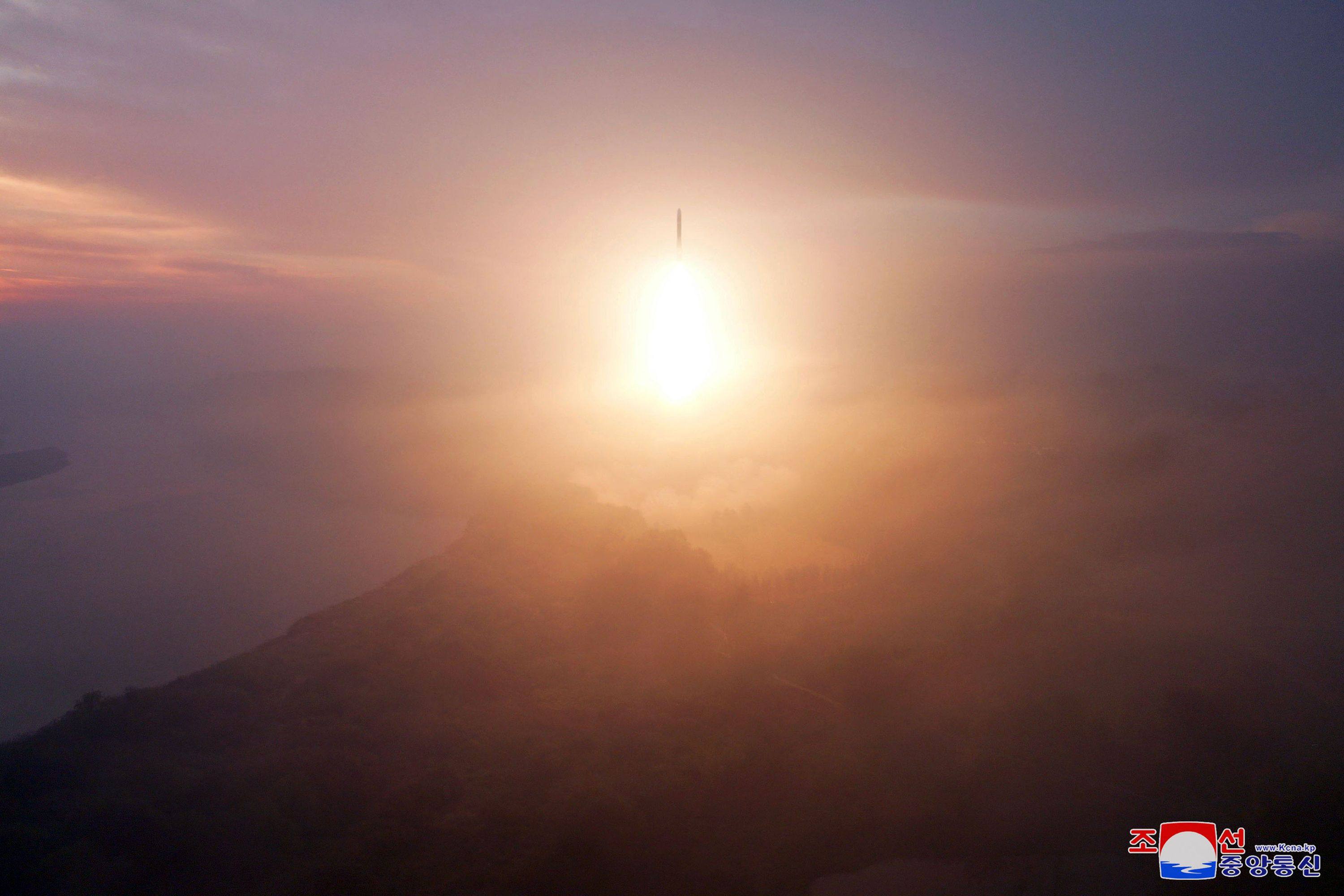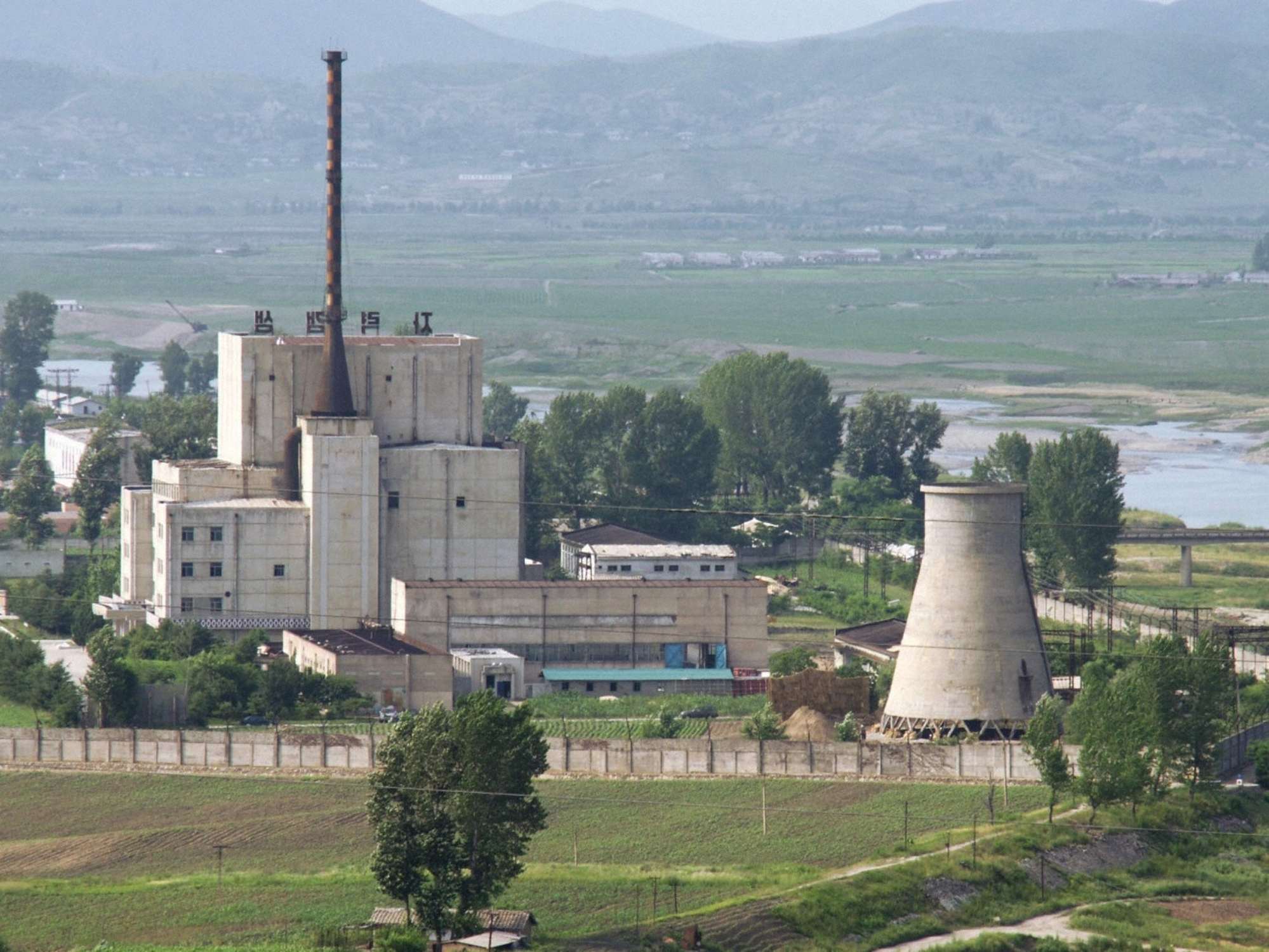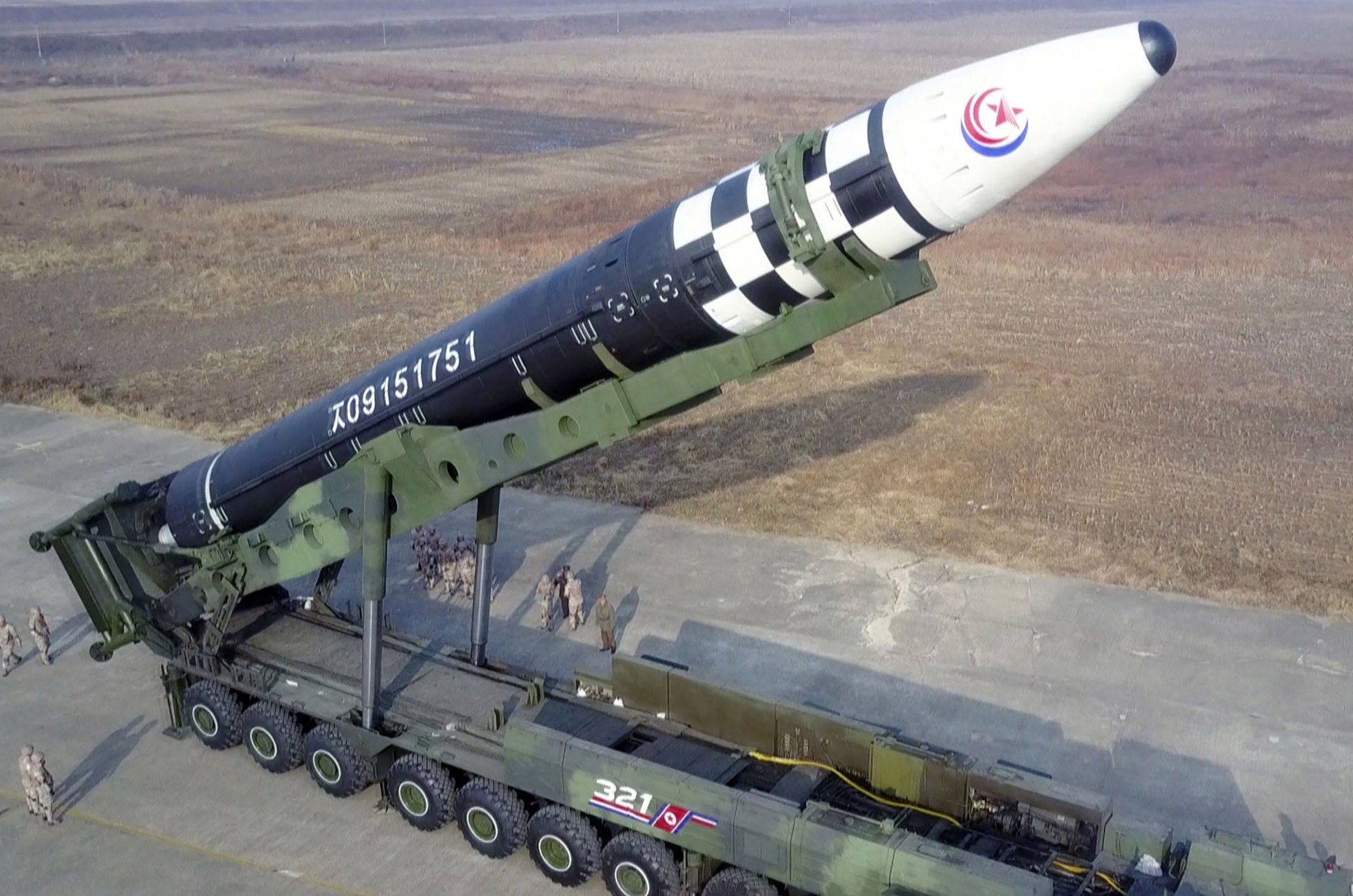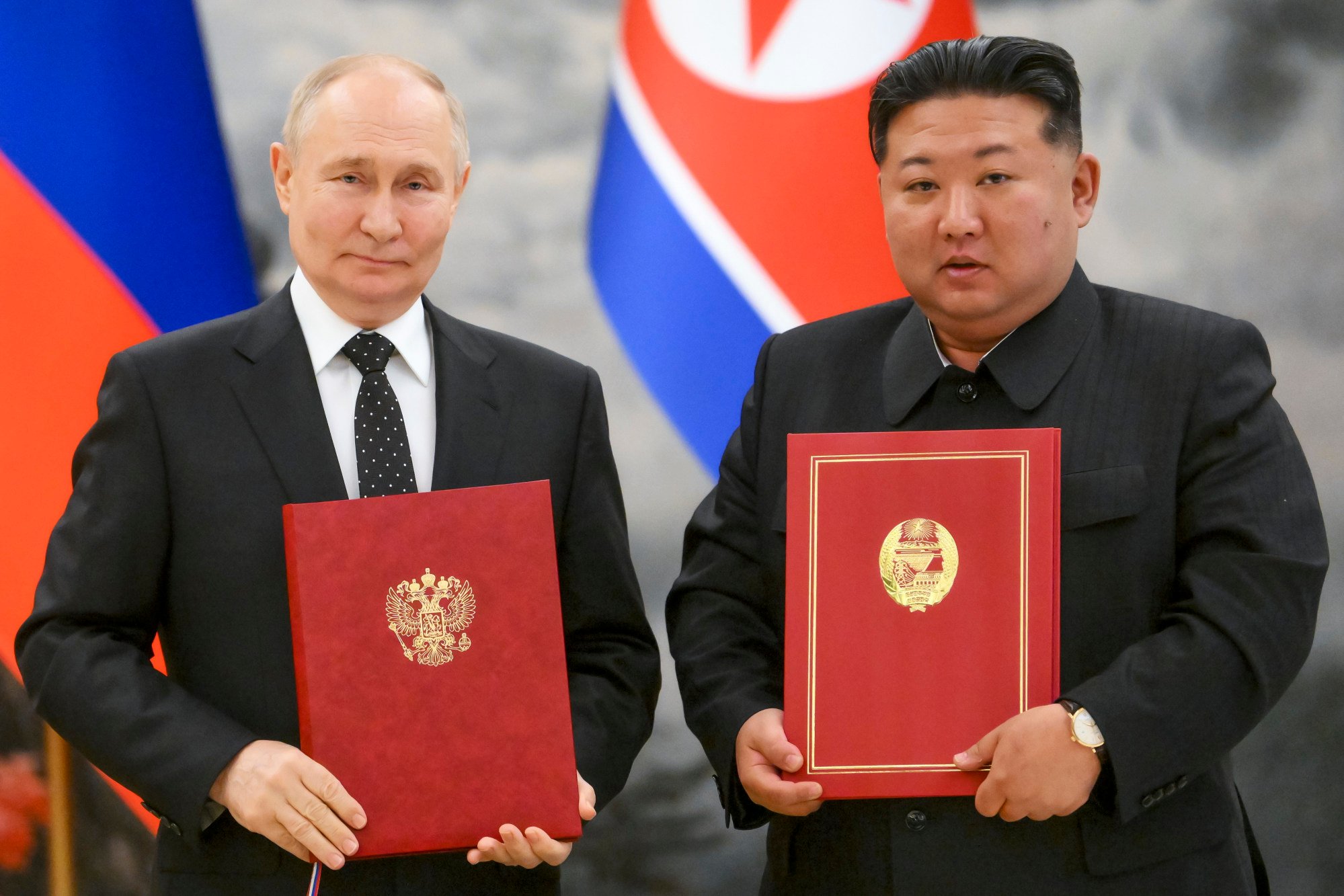‘Never give up nuclear weapons’: what Israel-Iran conflict tells North Korea
With lessons drawn from Ukraine and now Iran, Pyongyang’s commitment to its ‘irreversible’ nuclear status is firmer than ever, analysts say

As missiles fly in the Middle East and the world’s attention fixes on Israel vs Iran, the shock waves are being felt in Pyongyang – where North Korea’s leaders, ever watchful, see yet another reason to cling to their nuclear arsenal.
While views differ on precisely how Pyongyang is reading the escalating conflict, observers are united on one point: if there is ever to be a chance of drawing North Korea back to the table for denuclearisation talks, the diplomatic door must remain ajar.
Since Israel launched its military campaign against Iran on June 13, hardliners in the US Congress, Israeli officials and exiled Iranian dissidents have ramped up calls to topple Tehran’s clerical leadership, arguing for the exploitation of internal unrest to unseat Supreme Leader Ayatollah Ali Khamenei’s regime.
But in Pyongyang, observers say the lesson is viewed through a singular prism: survival.
“North Korea has always pointed to the fate of Libya’s Muammar Gaddafi and Iraq’s Saddam Hussein as justification for never giving up its nuclear weapons,” said Koh Yu-hwan, a professor of North Korean studies at Dongguk University.
It has learned a lesson; if you want to hold on to power, you never give up your nuclear weaponsKoh Yu-hwan, professor of North Korean studies
“It has learned a lesson; if you want to hold on to power, you never give up your nuclear weapons,” he warned.
That resolve has only grown firmer over time, Koh added.
“After seeing Russia’s invasion of Ukraine – which gave up its nuclear arsenal in 1994 – and now Israel striking Iran, North Korea is more firmly determined than ever to cling to its nukes,” he said, describing the prospects of a denuclearised Korean peninsula as “lost for good”.
In April, Kim Yo-jong, the influential sister of leader Kim Jong-un, declared the country’s nuclear status was “irreversible”, deriding US hopes of denuclearisation as a “daydream”.
“If the US and its vassal forces continue to insist on anachronistic ‘denuclearisation’ … it will only give unlimited justness and justification to the advance of the DPRK aspiring after the building of the strongest nuclear force for self-defence,” she said.

North Korea’s refusal to denuclearise has been evident since at least 2012, said Sydney A. Seiler, a Centre for Strategic and International Studies Korea Chair senior adviser, as Pyongyang brushed aside international alarm over its uranium enrichment programme.
It was a “reminder that ultimately North Korea was not going to denuclearise,” Seiler said.
Despite acknowledging its enrichment activities, Pyongyang has insisted they are for peaceful energy use – even as it rebuffed US and allied efforts to dismantle its weapons programme through the “six-party talks”.
The central dilemma for successive US administrations was “how to engage North Korea towards a goal Pyongyang is clearly not going to agree to,” Seiler said.
“This commitment to nuclear capabilities never was tied to the examples provided by Iraq, Libya, Ukraine, or now Iran: it was primarily driven by the examples provided by Mao in securing China’s place on the world stage through its own pursuit of a nuclear capability,” he added.

For Pyongyang, nuclear weapons serve not only as a deterrent, but also as a means for achieving international prestige – and a buffer against domestic vulnerabilities, according to Seiler.
“Continued pressure and stigmatisation as the cost of Pyongyang’s refusal to talk must be maintained,” he said.
“Appeasement is tempting, but must be avoided,” Seiler added, urging South Korea to remain “firm and resilient” in its approach. “Diplomatic strategy must credibly leave the door open should Kim Jong-un change his mind, but we should never assume Kim will.”
Leif-Eric Easley, professor at Ewha University in Seoul, agreed that protracted conflicts in Ukraine and the Middle East, along with the US’ global trade war, had reduced the prospects for diplomacy with North Korea.
“That is because the Kim regime exploits Russian aggression, regional instability, and US-China rivalry for Pyongyang’s benefit”, he said.
“Israel’s strikes against Iran’s nuclear programme might make the Kim regime feel vindicated about its own enduring and expensive efforts at developing a deterrent.”
Still, Tehran’s breaches of international agreements, use of asymmetric threats and its refusal to negotiate may have pushed it to the edge of regime collapse, he said.
“In Trump’s assessment, the lesson is clear: ‘they should have made a deal’.”
According to Robert E. Kelly, a professor of political science at Pusan National University, Israel’s strikes on Iran send a stark message to any nation contemplating nuclear arms: build them as swiftly and secretly as possible.
“For anti-Western rogue states, particularly, the lesson … is the same as that of Saddam Hussein and Muammar Gaddafi’s downfall: if you have nuclear weapons, you will not be attacked,” he wrote in a CNA commentary published on Monday.
“The best defence against American or Western action is to nuke up and never denuclearise, no matter what they offer.”
But it is unclear exactly what lessons Kim has drawn from other nations’ experience, according to Cho Han-beom of the Korea Institute for National Unification.
“He may think that their dispossession of nuclear weapons resulted in their demise,” Cho said. “On the other hand, Kim would also feel pressure to avoid his worst nightmare – regime change – by considering denuclearisation.”
‘Russia will need North Korea’
Cho and other analysts agree that Pyongyang’s deepening military ties with Moscow have only entrenched its current trajectory.
Russian media reported on Tuesday that North Korea planned to send 5,000 military construction workers and 1,000 sappers to Russia’s Kursk region, on top of the 3,000 additional troops dispatched this year and supplementing the 11,000 or so sent in 2024.
These deployments are part of an expanding military alliance established under a June 2024 treaty signed by Kim and Russian President Vladimir Putin.
In exchange, Pyongyang has reportedly received arms, military technology and other critical supplies.
“This mutual exchange will likely continue well after any ceasefire in Ukraine,” Cho said. “Russia will need North Korean engineers and soldiers to help rebuild, especially in territories it holds in Ukraine.”

Washington on Tuesday condemned Pyongyang’s latest move, calling it “deeply concerning”.
A State Department spokesman told Yonhap News that North Korea was leveraging these “labour and soldier-for-hire schemes” to earn desperately needed foreign funds.
Those funds, the spokesman said, were being funnelled into prohibited weapons of mass destruction and ballistic missile programmes, in violation of UN Security Council resolutions.
Britain’s defence ministry has estimated that more than half of the original 11,000 North Korean troops sent to Kursk have become casualties.
Cho pointed out that while North Korea relies on Russia for food, energy and weapons technology – including naval upgrades – Moscow depends on Pyongyang’s manpower and munitions to sustain its war in Ukraine and to rebuild in its aftermath.
South Korea, meanwhile, has reaffirmed its unwavering stance on its neighbour’s denuclearisation.
Kim Min-seok, new President Lee Jae-myung’s prime minister-designate, reiterated on Tuesday that Seoul rejected North Korea’s claim to nuclear status.
He also ruled out the prospect of Seoul developing its own nuclear weapons, building nuclear-powered submarines or redeploying US nuclear assets to counter the North’s growing arsenal.